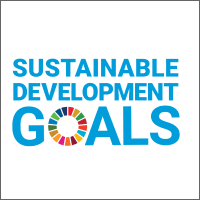SOCIAL PRACTICE
All years
2025
2024
2023
2022
2021
2020
2019
2018
2025
2024
2023
2022
2021
2020
2019
2018
|
Sep 27, 2020
Minxiong Studies-Course Campaign
Bike tour around San-sing village, local village guide tour, feedbak and discussion, course introduction, discussion of the local issues in Minxiong.
|
Sep 25, 2020
YA-CAT’s production: Earth Self-Defense Force
<p>The drama is about the desire for love, self-criticism, the pursuit of the meaning of life, and so on. Also, the drama is combined with Chiayi’s local theater, in order to come alive the local’s artistic atmosphere.</p>
|
Aug 27, 2020
International Bamboo Photography Competition for Elementary School Students
The competition’s theme was ‘Bamboo for Sustainable Development. The Brief of the competition was to photograph a picture that reflects the culture of using bamboo in our homes and our lifestyle. It was divided into junior category which consisted of 6 to 8 grade students while the senior category consisted of 9 to 12 grade students.
|
Aug 01, 2019
Foothpath Design for Sustainable Cities and Communities
To promote UN SDG 11 goal for,Prioritise pedestrian access on campus, National Chung Cheng University has established the following facility.<p></p>
|
Aug 01, 2019
Campus Crosswalk for Sustainable Cities and Communities
To promote UN SDG 11 goal for,Prioritise pedestrian access on campus, National Chung Cheng University has established the following facility.<p></p>
|
Aug 01, 2019
CCU USR HUB Project-Community Care on Intergeneration Co-Living Programs
To promote UN SDG 11 goal for,Work with local authorities to address planning issues and development, including ensuring that local residents are able to access affordable housing,National Chung Cheng University has held the following SDGs activity. <p></p>
|
Aug 01, 2019
Residential Arrangements for Sustainable Cities and Communities
To promote UN SDG 11 goal for,Work with local authorities to address planning issues and development, including ensuring that local residents are able to access affordable housing,National Chung Cheng University has worked on the following research. <p></p>Objectives: Increasing demand for long-term health and social care has emerged since a heightened prevalence of disability of older Taiwanese over 65 from 2.9% in 1999 to 15.5% in 2020. Despite the implementation of a long-term care plan since 2006 and objectives emphasizing on the equity of utilization, little is known about the adequacy of services to meet the needs of the individuals. This paper explores unmet need for services among older adults to address inequity in access to sufficient social care and their adverse consequences. Implications for current and emerging health and long-term care policies that assess equity in resource allocation and design care models are discussed. Methods: Using data from the Taiwan Longitudinal Study on Aging, the study sample consists of 3,778 community-dwelling older persons age 57 or older in 2003. Six types of unmet needs were included: living arrangement, visiting a doctor, ADL and IADL assistance, emotion and instrumental support. The specific question about unmet need for living arrangements is as follows: “How much do you like this house you live in now?”: had (dislike extremely, dislike very much, and neither like nor dislike) or did not have (like very much and like extremely) the unmet need. For unmet need for visiting a doctor, the question is as follows: “How convenient do you think convenient do you think is to visit a physician?”: had (inconvenient and very inconvenient) or did not have (convenient) the unmet need for visiting a physician. Similar strategy to measure unmet need was applied for ADL and IADL assistance, and self-reported emotional and instrumental support. Covariates included socio-demographics, deviation from normal BMI and number of chronic conditions, health behavior, number of children living together, and lagged values of five health outcomes in 2003. Dynamic ordered probit specifications were used to produce estimates. Results: For most of health outcomes, we observe a deleterious effect of unmet need on the next period’s health. For example, for those reporting unmet needs of living arrangements, we expect a significant increase in probability of poorer self-reported health (adj-β=0.23), greater psychological stress (adj-β=0.18), more depressive symptoms (adj-β=0.16), lower levels of life satisfaction (adj-β=-0.07), and higher mortality (adj-OR=1.18). The respondents reporting unmet needs on visiting a doctor (adj-β=-0.12), emotional support (adj-β=-0.10), and IADL (adj-β=-0.27) were significantly associated with decreased life satisfactions. Furthermore, the results indicate significant associations between cumulative number of unmet need and self-report health, mental stresses, depression, and life satisfaction. Conclusion: Understanding the effects of unmet needs on health outcomes will facilitate to assess equity in access to services and to design strategies for resource allocation that meet the needs of the people.
|
Aug 01, 2019
Innovation Building for Sustainable Cities and Communities
To promote UN SDG 11 goal for,Build new buildings to sustainable standards, National Chung Cheng University has established the following facility.<p></p>
|
Aug 01, 2019
Proactive Center Building for Sustainable Cities and Communities
To promote UN SDG 11 goal for,Build new buildings to sustainable standards, National Chung Cheng University has established the following facility.<p></p>
|
Aug 01, 2019
PV Generation System Setup at Activity Center for Sustainable Cities and Communities
To promote UN SDG 11 goal for,Build new buildings to sustainable standards, National Chung Cheng University has established the following facility.<p></p>
|
Aug 01, 2019
College of Social Sciences Greenspace for Sustainable Cities and Communities
To promote UN SDG 11 goal for,Build on brownfield sites, where possible, National Chung Cheng University has established the following facility.<p></p>
